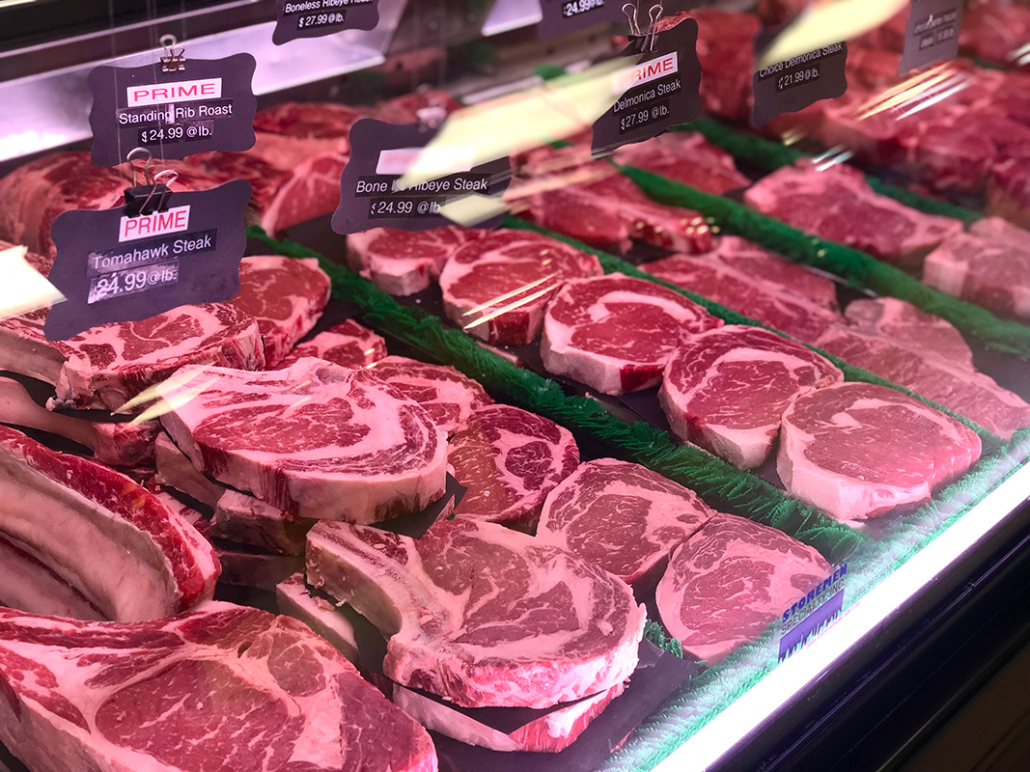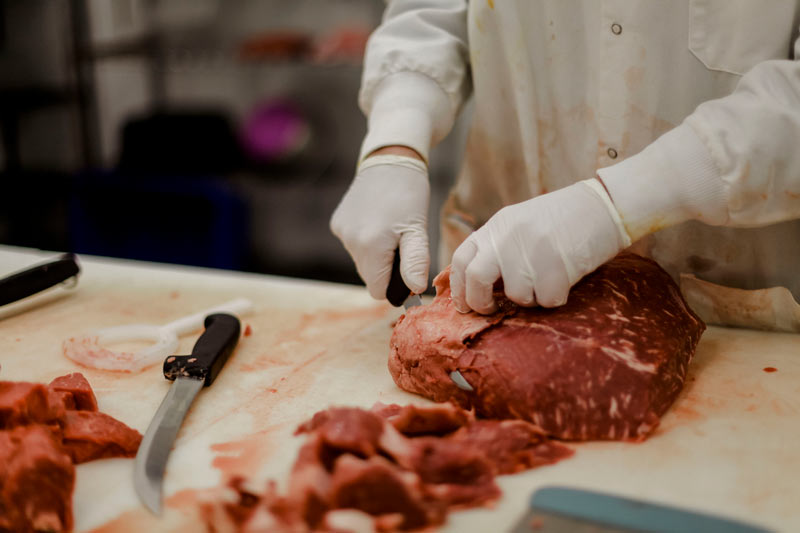Bagley Meat Market Edwardsville IL – A Tradition of Serving the Best Meats to Locals
Bagley Meat Market Edwardsville IL – A Tradition of Serving the Best Meats to Locals
Blog Article
Why Purchasing at a Local Meat Market Guarantees Fresh, High-Quality Cuts
Shopping at a neighborhood meat market provides unique advantages that often go undetected by consumers accustomed to bigger retail chains. These markets provide straight access to fresh, top notch cuts, an outcome of reduced transportation time from farm to respond to. This not just boosts flavor yet additionally sustains regional farmers, fostering area connections and lasting methods. Moreover, extensive high quality control measures make sure that each acquisition meets high standards of safety and freshness (bagley meat market edwardsville il). Yet, the ramifications of picking local expand past prompt benefits, motivating a better examination of what this choice truly means for both consumers and the neighborhood economy.
Advantages of Neighborhood Sourcing
In the realm of food procurement, the advantages of local sourcing stand apart prominently. By acquiring meat from local markets, consumers gain direct access to items that are often fresher and extra delicious than those discovered in bigger, commercial grocery stores. Local sourcing lowers the moment and range food takes a trip from ranch to table, which not only boosts taste yet likewise protects nutritional value.

Additionally, local sourcing often offers transparency relating to the beginnings of the meat. Consumers can ask concerning the farming techniques utilized, pet welfare criteria, and whether the meat is natural or grass-fed. This details encourages customers to make enlightened decisions aligned with their worths.
Quality Assurance Specifications
Regional meat markets typically stick to rigorous high quality control requirements that guarantee the products provided meet high safety and security and freshness standards. These criteria normally include numerous phases of the meat manufacturing process, from sourcing to managing and storage.
First, neighborhood markets frequently develop rigid provider standards, making sure that just respectable farms and producers are made use of - bagley meat market edwardsville il. This minimizes the probability of contamination and advertises higher pet welfare requirements. Additionally, many neighborhood meat markets execute regular inspections to confirm that the meat is refined under hygienic conditions, additionally minimizing wellness risks
Temperature control is another essential facet of quality control. Regional meat markets frequently check refrigeration systems to preserve optimum storage temperature levels, making sure that meat remains fresh and risk-free for intake. The application of traceability systems enables markets to track the beginning of their products, giving openness and accountability.
Finally, personnel at neighborhood meat markets are often trained to acknowledge signs of putridity and recognize proper handling methods. This commitment to quality control not only raises the general requirement of the meat however also fosters consumer trust, making local meat markets a trustworthy resource for top notch cuts.
Sustaining Neighborhood Farmers
Sustaining neighborhood farmers is vital for fostering a sustainable food system and enhancing community durability. When customers pick to patronize regional meat markets, they directly contribute to the livelihoods of farmers in their region. This not only supports the neighborhood economy yet likewise reinforces the farming industry, guaranteeing that it continues to be vivid and sensible.


Additionally, supporting local farmers cultivates a feeling of neighborhood and connection in between consumers and manufacturers. It motivates transparency in food sourcing and imparts count on, as consumers can create relationships with the individuals that raise their food. This direct link ultimately results in a much more engaged and notified public, which is vital for promoting for lasting farming techniques in the future.
Lasting Practices
Sustainable practices in meat markets play an important role in promoting environmental stewardship and ensuring animal welfare. Neighborhood meat markets usually prioritize sourcing their items from ranches that implement moral and lasting farming approaches. These practices consist of rotational grazing, which assists preserve dirt wellness and decreases carbon exhausts, together with minimizing using anti-biotics and hormones in livestock.
Additionally, local meat markets typically emphasize openness in their supply chains. Customers are provided with details pertaining to the origin of their meat, allowing them to make enlightened options that line up with their worths. By sustaining neighborhood farmers that practice lasting techniques, customers add to the conservation of biodiversity and the reduction of transportation emissions related to long-distance meat circulation.
Furthermore, many neighborhood meat markets take part in waste decrease approaches, such as using every part of find out this here the animal and advertising off-cuts that may otherwise go unsold. By promoting a much more sustainable strategy to meat usage, these markets not just give high-grade products but additionally contribute favorably to the environment and pet well-being. Basically, buying at a neighborhood meat market aligns customers with a wider movement towards ethical and accountable food sourcing.
Personalized Client Service
Buying at a meat market typically incorporates greater than just the products supplied; it is also regarding the experience and the relationships developed in between customers and staff. Customized client service is a trademark of regional meat markets, establishing them apart from larger grocery store chains. Experienced staff put in the time to recognize individual customer preferences, making sure that each check out is customized to specific needs.
Customers take advantage of skilled guidance on cuts, cooking techniques, and preparation ideas, you can check here promoting a feeling of trust fund and loyalty. This customized interaction enables customers to ask questions and seek suggestions, bring about educated purchasing choices. Team member usually remember routine clients and their preferences, creating an inviting environment that cultivates neighborhood connections.
In addition, tailored solution reaches special requests, such as custom cuts or specific preparation methods, which bigger merchants may not accommodate. This degree of attention strengthens the commitment of neighborhood meat markets to high quality and customer fulfillment.
Basically, individualized customer care not only improves the buying experience but likewise makes certain that clients leave with the very best items fit to their cooking requirements, making every browse through a rewarding one.
Verdict
Supporting neighborhood farmers promotes neighborhood partnerships and enhances the neighborhood economy, while sustainable methods add to ecological stewardship. Additionally, customized customer service enhances the shopping experience, making regional meat markets a favored choice for customers looking for both quality and ethical considerations in their food sourcing.
The ramifications of selecting local expand past immediate benefits, prompting a better evaluation of what this selection truly suggests for both Read Full Report customers and the neighborhood economic situation.
Sustaining neighborhood meat markets likewise adds to the neighborhood economy. Regional meat markets often keep track of refrigeration systems to keep ideal storage space temperatures, making sure that meat remains fresh and secure for consumption.Regional farmers are usually a lot more attuned to the certain requirements of their communities, raising and growing plants animals that align with local tastes and choices. Sustaining regional farmers promotes area relationships and strengthens the local economy, while lasting practices contribute to ecological stewardship.
Report this page